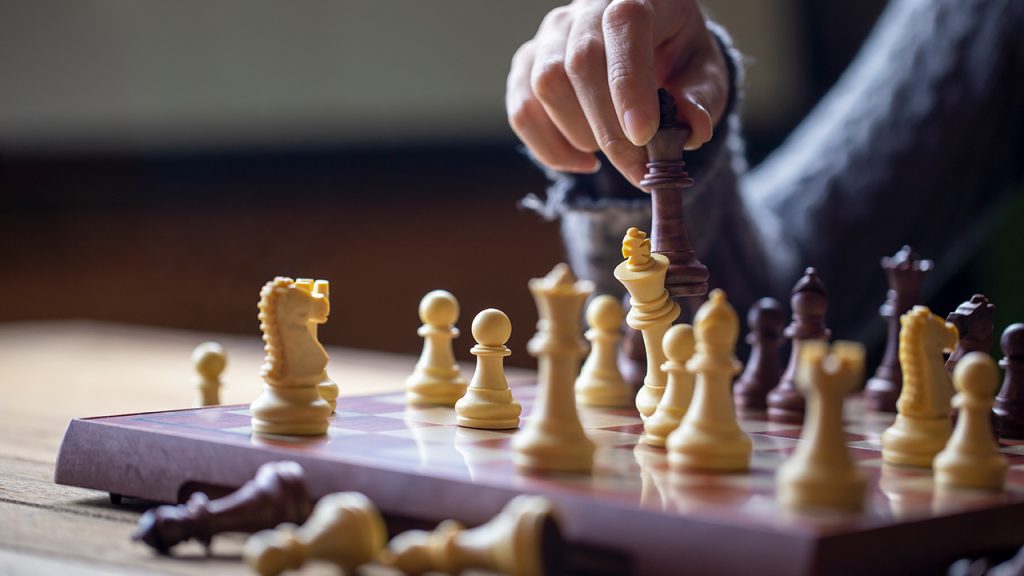I’ve always been fascinated by how chess masters seem to read the board like a book, knowing what their opponent will do before they even move a piece. It feels almost like a superpower—how can they predict moves before they happen? The truth is, this ability isn’t magic, but the result of years of practice, pattern recognition, and strategic thinking. In this article, I’m going to take you through some of the ways top players anticipate their opponent’s next move. It’s an amazing mix of psychology, mathematics, and pure chess skill that can feel almost supernatural to those of us who play for fun.
So how do these chess masterminds do it? Let’s break it down.
Pattern Recognition
Chess masters have played thousands of games and studied even more, which allows them to instantly recognize patterns. Whether it’s an opening like the Sicilian Defense or a common middlegame tactic, they’ve seen it all before. This massive mental database helps them predict what their opponent is likely to do next because they’ve been in similar positions countless times. It’s not just memorisation—it’s recognising the deeper structure of the game.
Thinking Several Moves Ahead
One of the key ways chess masters predict moves is by thinking several moves ahead, often 10 or more. When they look at the board, they don’t just see the present configuration of pieces; they also consider how the game could evolve based on the possible responses of both players. This kind of forward-thinking allows them to plan their own moves while anticipating their opponent’s options, reducing the chances of being surprised.
Understanding Opponent’s Style
Chess is as much about psychology as it is about strategy. Masters often study their opponents before a match to understand their habits, favourite openings, and common strategies. This allows them to predict the types of moves their opponent might favour. For example, a player known for aggressive tactics will likely make bold, attacking moves, whereas a more defensive player will play conservatively. By understanding the opponent’s mindset, a master can anticipate the kinds of moves they are likely to make.
Using Tactical Patterns
Tactical patterns, like forks, pins, and skewers, are part of a chess master’s toolkit. These are well-known techniques for trapping an opponent or gaining material. Masters are constantly on the lookout for these opportunities, not just on their own side but in their opponent’s plans as well. By recognising when a tactical opportunity is about to emerge, they can often predict their opponent’s next move and set traps of their own.
Time Pressure and Bluffing
Masters also understand the importance of psychological tactics, especially in timed games. Time pressure can force an opponent into making rushed or poor decisions. A chess master may deliberately play a move that looks confusing or tricky in order to bluff their opponent into thinking it’s a mistake. By playing mind games, they can steer the game in a direction that leads to predictable and sometimes panicked moves.
Memorising Opening Lines
One of the most studied parts of the game is the opening. Masters often memorise dozens of opening sequences and variations, sometimes 20 or more moves deep, to prepare for specific opponents. This allows them to predict their opponent’s moves in the early stages of the game with near certainty. If the opponent deviates from a known opening line, that deviation can give away their strategy, helping the master to predict future moves with even greater accuracy.
Calculating Variations Quickly
Chess masters excel at calculating potential moves and variations faster than most people can follow. They quickly analyse potential moves by both players, deciding on the best course of action while keeping their eye on potential threats. This rapid calculation ability allows them to stay several steps ahead of their opponent, making their predictions seem almost instant. It’s a skill honed through years of practice and study.
Ellen has been obsessed with logic puzzles, jigsaws, and cryptograms since she was a kid. After learning she was taught how to play chess wrong by a family friend (so they could win), she joined her school chess club and the rest is history.


